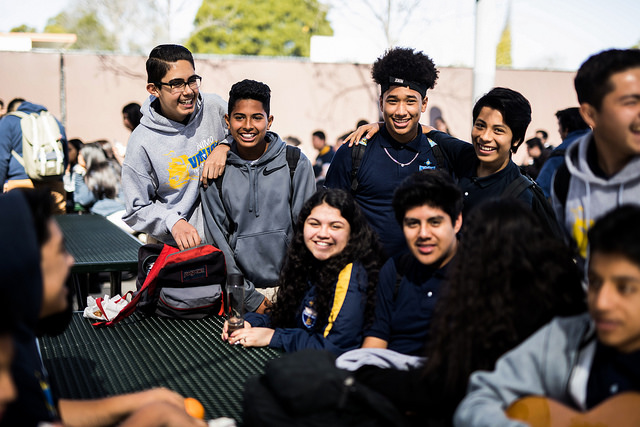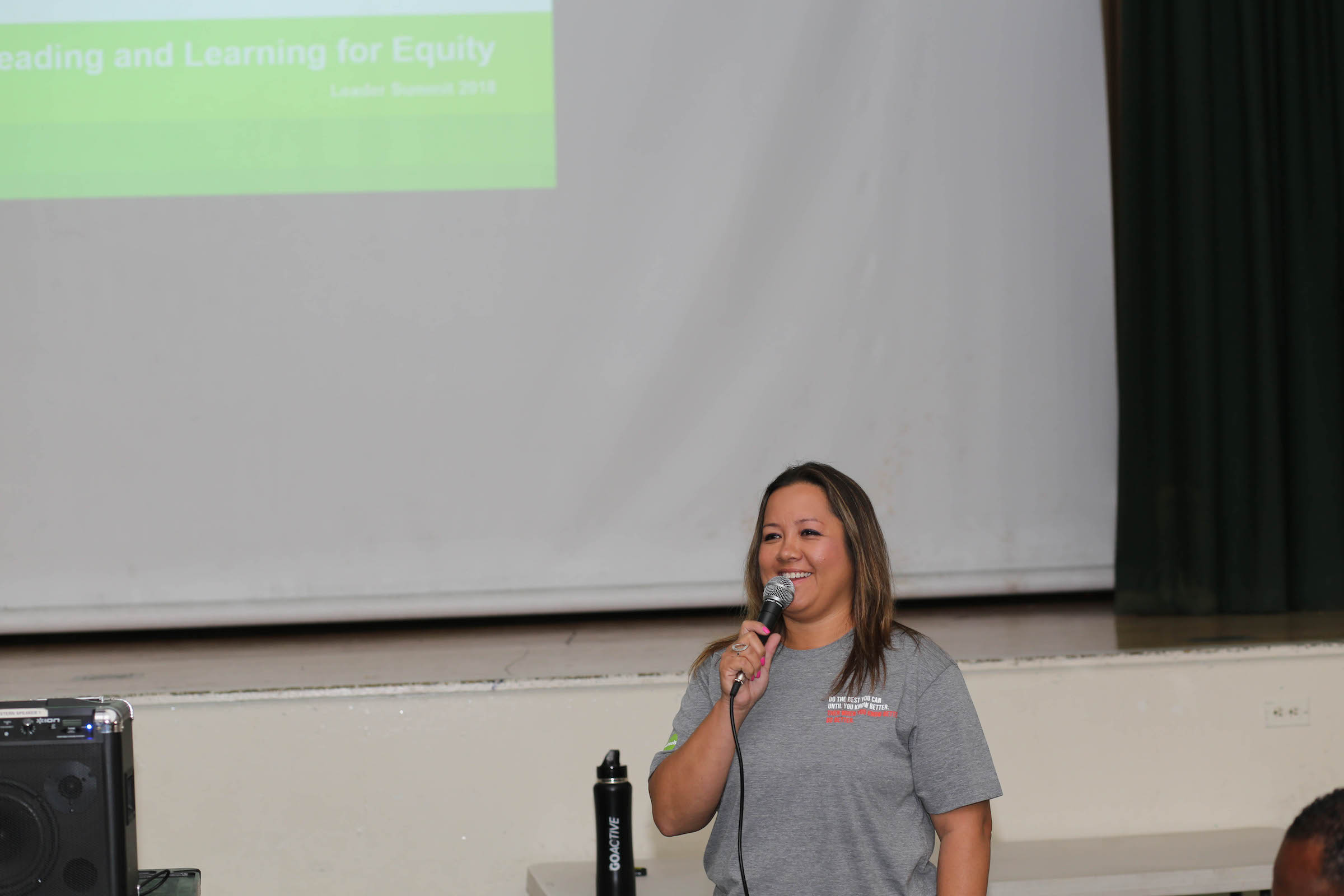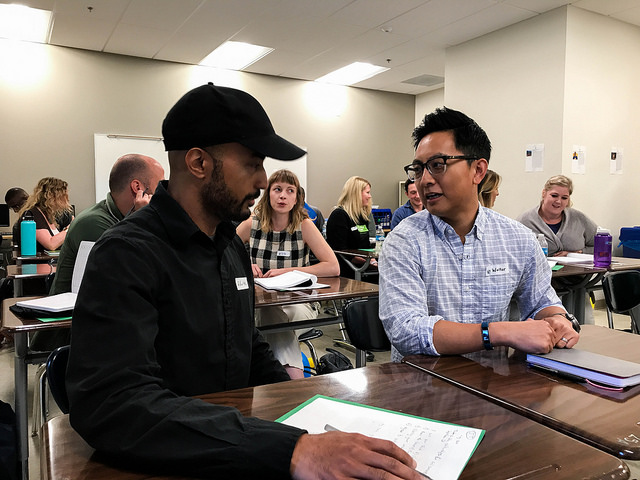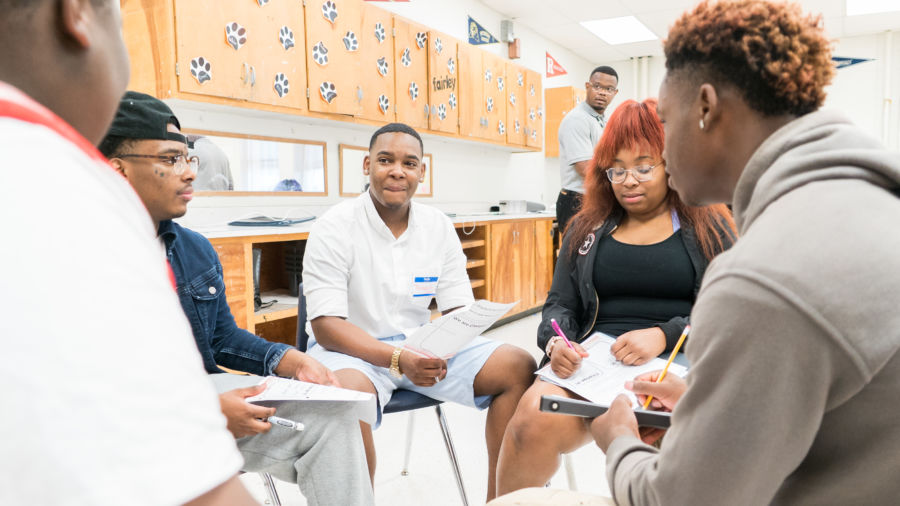A More Intentional Approach to Diversity, Equity and Inclusion at Green Dot

In order to deliver on our promise of preparing all students for college, leadership and life, we believe we need to foster school cultures that embrace both individuality and unity, beginning with our own team members. When we explore, acknowledge, and embrace the differences between us, we can teach our students to do the same thing, paving the way for truly inclusive environments and teaching with equity in mind. That’s why we launched the Diversity, Equity and Inclusion (DEI) initiative at Green Dot Public Schools.
While DEI is implied in our core values and mission, and consequently we have folded a DEI lens into much of our work, we realized we hadn’t shared a clear and explicit commitment to creating highly diverse, equitable and inclusive organizational culture. Furthermore, we wanted to push ourselves to include diversity of thought, equity in access to resources and opportunities, and the creation of environments in which all students, staff, families, and community partners have a sense of safety and belonging.
For the past two years, a cross-network working group has been committed to the development of an annual survey and a DEI commitment statement. In addition, the working group helped conduct an audit of current talent sourcing and hiring practices, human resources and legal policies to identify areas of growth. The working group has held discussion groups for all staff, analyzed survey results, and thought through what it looks like for the organization to “get it right” as we further embed a DEI lens in our work. Working groups in each of our regions are now working with a group of local stakeholders to design their strategic plan and identify the key actions locally to help meet our DEI goals.
Embedding the Organizational DEI Lens
In the meantime, Green Dot is already beginning to take steps toward high intentionality around our DEI work.

This summer, Cristina de Jesus, CEO of Green Dot California, walked nearly 100 school leaders through a conversation about why it’s important to examine our work through an equity lens. Leaders discussed equity in academic rigor, pedagogy, bias confrontation and resource allocation. Furthermore, this year our California schools will begin a particular focus on inclusion for our LGBTQ+ students and staff. In addition, our teams are continuing to work with both the National Equity Project to train our employees, and the California Conference for Quality and Justice (CCEJ) to deepen our restorative justice practices at schools.
Similarly, Bree Dusseault, Executive Director of Green Dot Washington, worked with a dozen school leaders on the importance of radical inclusion in their schools. After several trainings throughout the school year from The Center for Culturally Responsive Teaching and Learning, Washington school leaders worked through ways to make sure all truly means -- and feels like -- all within their walls. In addition, they have begun piloting a new Racial Equity Toolkit by applying the process to their Parent and Guardian policies.


In Tennessee, Executive Director Megan Quaile and Directory of Community Engagement Jocquell Rodgers worked with school leaders to host professional development for campus security officers and instructional aides on relating to their students. Like elsewhere, our Memphis team continues to work with partner organizations like Campaign for School Equity to provide student advocacy training.
The Research Agrees
It doesn’t take too much time reading through the research to discover how an intentional approach to diversity in the workplace leads to a more effective company or organization. According to a study from Deloitte, feelings of inclusion are linked with better performance, greater motivation to achieve, and greater employee engagement and retention. Inclusive teams comprised of individuals with a diversity of perspectives outperform homogenous teams of experts or individuals with some common attributes, like high IQs. Research also shows that when we hear dissent from someone who is different from us, it provokes more thought than when it comes from someone who looks like us.
More importantly, our DEI work is part of delivering on the Green Dot promise. We are committed to meeting students where they are, and helping them grow, and we know that more intentionally cultivating diversity, equity and inclusivity among all Green Dot stakeholders is vital to that commitment. While we know an increased focus on DEI will be hard work, it’s essential in fulfilling our mission.
